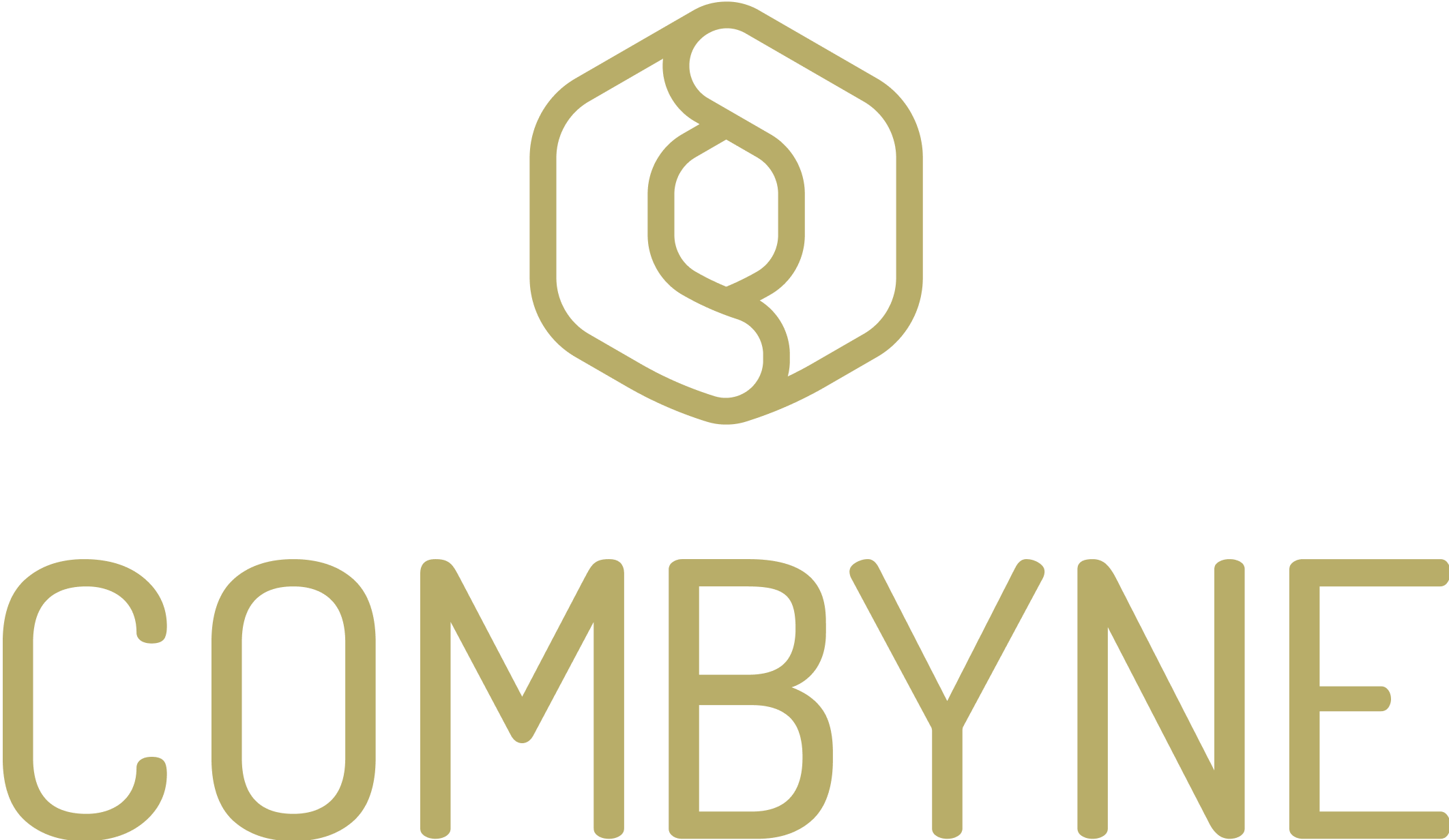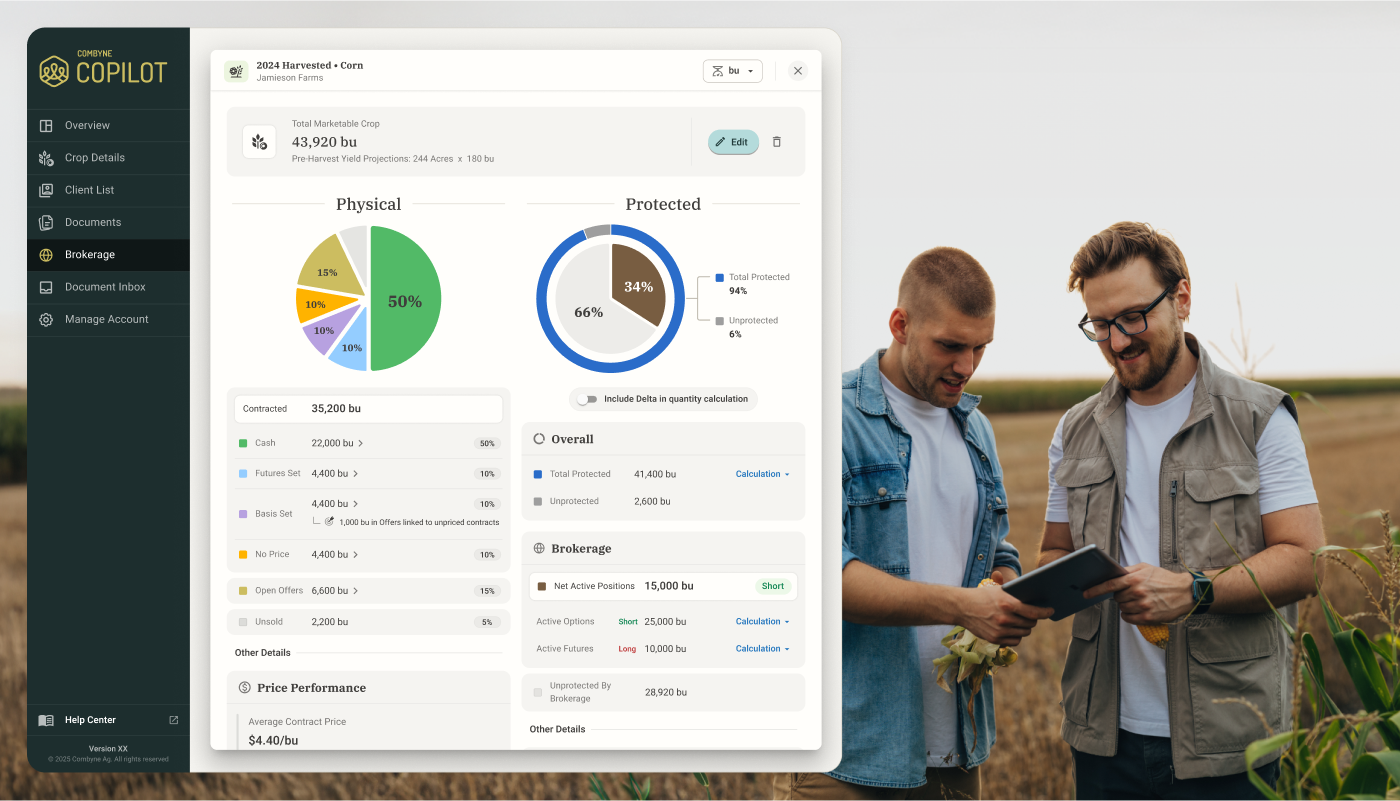Taylor Pope had reached a tipping point. The co-owner of Clayton Pope Commodities, a U.S.-based grain marketing, consulting and brokerage firm, had just about enough of juggling spreadsheets, emails and cumbersome online portals that he needed to support his clients.
So, Pope set out to find a single software solution that could streamline the management of farmers’ production, have the ability to track sales in a readable and editable format, plus incorporate technology to automate data entry.
“We were after something that could make it easier than it was,” says Pope, whose brokerage serves clients across 16 U.S. states, specializing in corn, soybeans, cotton, rice and various types of wheat. “Farmers are busy, and we are busy. Nobody wants to take the time to track every time someone does something.”
Critically, he also wanted a solution that integrated the brokerage side of the business, allowing the Clayton Pope team to see futures and options positions alongside physical sales.
Pope’s journey led him to Combyne Copilot, a new web-based portal that creates a shared system for farmers and grain marketing advisors to manage and collaborate in real time and in one place.
Developed by the ag tech firm Combyne, the new portal builds on the company’s original Combyne app released in November 2021 as a farmer-facing tool for managing crop marketing data. The original Combyne app is still available, but the Copilot platform is specifically targeted at marketing advisors who work with farmers.
Farmer feedback drives innovation
Laura Lee, head of business development and strategy at Combyne, says the catalyst for creating Copilot stemmed directly from farmer feedback.
As farmers used the original Combyne app to track their grain inventory, sales contracts and deliveries, they began asking for features that would make it easier to share this information with their advisors.
“Farmers were saying, ‘since we’re already having to do this, it would be a lot easier for me if I could add my advisor through an additional seat on my account’. Or they asked if there was a way they could export their data from Combyne then send it to their advisor,” she says.
The team at Combyne had further conversations with advisors that revealed another key need: avoiding the hassle of logging into and navigating separate profiles for each client. Advisors wanted a way to see information aggregated across their entire client base in a single, unified view.
This request led to the development of Copilot, which launched in the summer of 2024 by Combyne, a 30-person software company operating in the U.S. and Canada that specializes in risk management tools for agriculture.
“Copilot is an extension of the Combyne app,” says Lee, “but instead of seeing a window into a single farm, it rolls everything up in aggregate across an advisor’s entire farmer client base. They can view everything in one place, whereas other platforms might require advisors to manually switch between accounts.”
Lee says another benefit is that both the farmer-facing Combyne app and the advisor-facing Copilot portal tie into the same core backend database. This means that data entered by a farmer in the Combyne app automatically syncs and updates for the advisor in Copilot, and vice versa.
Consolidation of information keeps everyone on the same page
Real-time collaboration reduces communication gaps, says Lee, and that ensures everyone has an accurate, up-to-date picture of the farm’s marketing position. Improved data accuracy and accessibility means faster, more informed decision-making for both farmers and their advisors.
“If an opportunity comes up, within a minute you can look and … know exactly how much inventory you have left, then make a decision on how much you want to sell,” she says.
“In the past, you would have had to check a bunch of spreadsheets. Copilot makes it a lot quicker and you’re going to be able to optimize your decisions because those decisions are better informed.”
Pope appreciates how Copilot brings data that was once scattered across multiple spreadsheets and elevator portals into one unified area.
He says Copilot has significantly improved communication and transparency with farmers. Clayton Pope can now send bi-weekly PDF reports to clients via email or text, providing them with an updated breakdown of their marketing position directly to their phone – whether they are in their combine, tractor or planter.
To Pope’s way of thinking, this real-time visibility is crucial for farmers, especially in volatile markets and tight financial conditions where fast decision-making on sales and grain movement is necessary. Farmers can quickly know their outstanding contracts, sold positions and average prices without needing to call multiple reps, and that leads to faster, more confident marketing decisions.
“The market has tightened a bit where farmers might have to move grain earlier,” says Pope. “Now, we’re able to be much more transparent, and it’s become a lot easier to make quick decisions.”
Copilot addresses a wide spectrum of advisor needs
Lee says Copilot is built to support the full spectrum of advisors. For grain marketing advisors, Copilot complements their focus on physical sales decisions, offering tools that align their approach to timing, volume, pricing and storage.
The portal is equally equipped for the needs of futures brokers, integrating seamlessly with workflows that rely on futures and options to manage market risk across cash grain positions.
As part of a recent update to Copilot, Combyne introduced brokerage management features that allow advisors to connect to farmers’ brokerage accounts and import records of futures and options trades. Critically, advisors can then map these paper trades to the physical positions tracked in Copilot, providing a comprehensive view of a farmer’s total price protection across physical sales and hedging activities.
Lee notes Copilot has integrations with various brokerage firms (FCMs) where advisors can enter trades manually or import them automatically from brokerage accounts — beginning with StoneX and Straits Financial, and expanding to others such as RBC and ADMIS.
“We’ve gotten to this point by sitting down with the advisors we’re helping and intimately learning what they do and what they need from a tool,” says Lee. “We encourage advisors to reach out to us if they have ideas on how we could evolve the platform.”
To learn more about Copilot and get a live demo, visit welcome.combyne.ag/copilot









